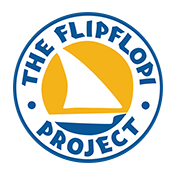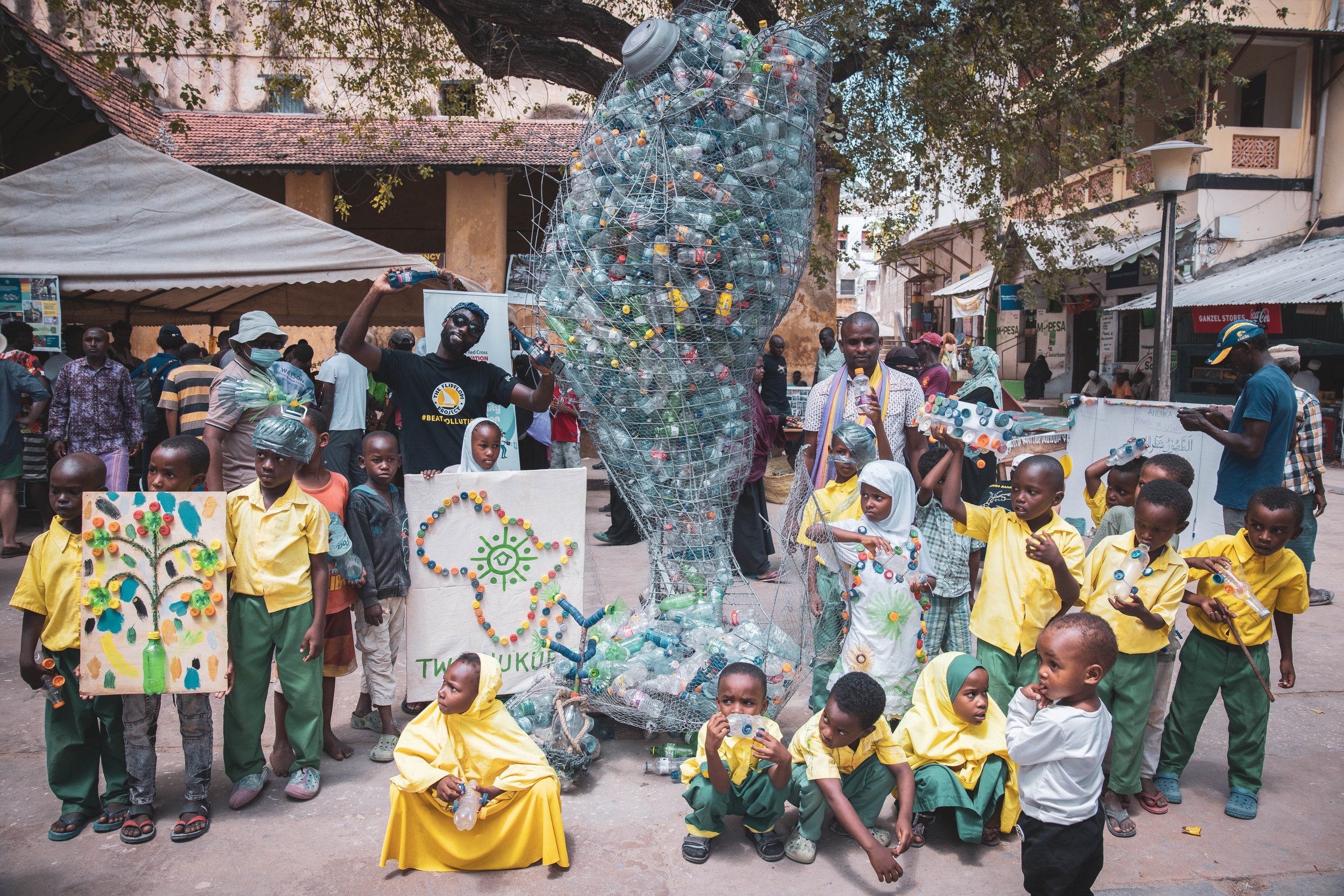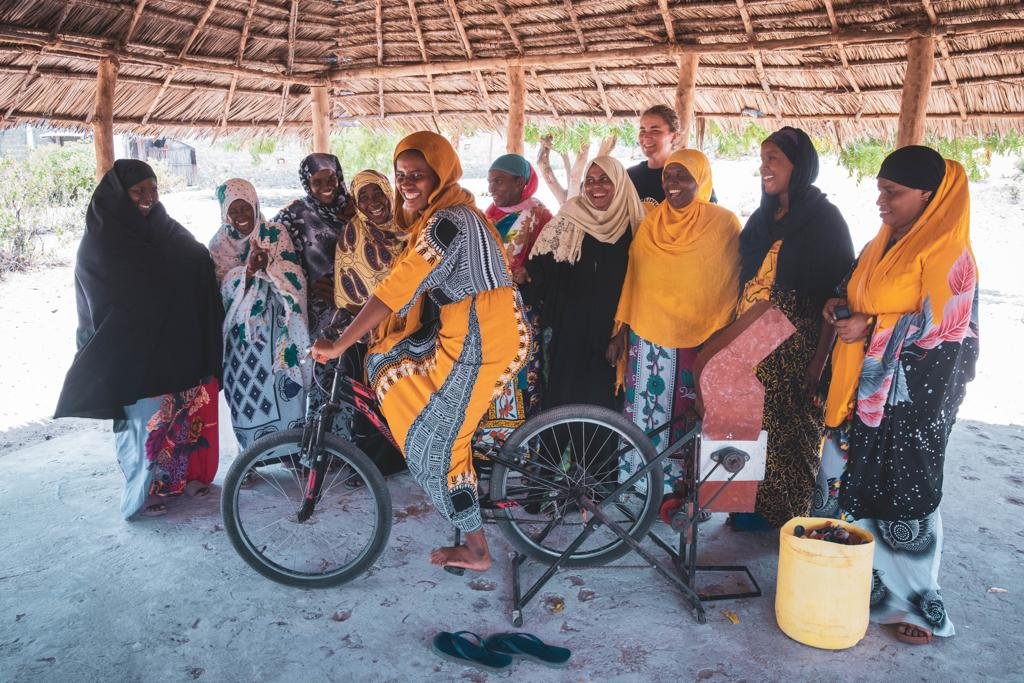The Flipflopi Story
Taking a Positive African #PlasticRevolution to the World!
Who We Are
We’re an East African circular economy movement that built the world’s first 100% recycled plastic sailing dhow.
In 2022, Flipflopi was awarded the prestigious FCDO’s SMEP Grant to tackle marine ecosystem health challenges which led to the creation of an innovative community-centred programme that is ‘closing the loop’ on waste plastic in Lamu by combining our indigenous knowledge of boatbuilding with modern innovation.
We employ a “full-systems” approach to beating plastic pollution through education and awareness campaigns, waste-plastic innovation rooted in heritage, and influencing legislative change to ban single-use plastics.
Our Mission
We use heritage boat building and waste-plastic innovation to create public engagement and drive policy action to ban all single-use plastics and ensure all other plastics are part of a circular economy.
To read more about our current 5 year strategy Click HERE.
To read our 2024 Annual Impact Report, click HERE
Our Origins
The idea to create a dhow made entirely from recycled plastic came to Ben Morison in 2015 after he was struck by the amounts of plastic, especially flip flops, littering the beautiful beaches he deeply loved.
He believed that building a boat from plastic waste would be an effective way to celebrate the centuries old traditional craft of dhow building that is a cornerstone of the Swahili culture of our coastal region, while also sharing a positive message about the need for change. Together with Ali Skanda, a renowned dhow builder from Lamu and Dipesh Pabari, a plastic pollution campaigner, they set about building a traditional sailing dhow entirely from waste plastic.
Ten tonnes of plastic waste, all collected from the Kenyan coast, were melted, shaped and carved by the team exactly as they would do with wood. Clad in 30,000 flip flops, the footwear of 3 billion people (and the most common item found during our beach clean ups), the dhow, aptly named “The Flipflopi”, is over nine metres long and weighs 7 tonnes – it is a world first.
And indeed, this remarkable achievement, was the catalyst for what the Times News called, “Africa’s Blue Planet Moment.” Led by Dipesh and Ali, and an incredible team of volunteers, the Plastic Revolution was ignited…
By using locally focused narratives and a cultural symbol of the dhow, we help turn awareness into action!
Why We Are Doing This
PLASTIC POLLUTION is one of the biggest environmental problems we are facing today.
The issue cannot be solved locally, without also being addressed regionally and internationally. For every piece of plastic picked up on a Kenyan beach, the ocean tide brings in five new pieces.
Addressing this GLOBAL problem requires LOCAL awareness and engagement.
Positive messaging
Ocean conservation needs a positive story. There is widespread fatigue with conventional ‘the end of the world is nigh’ messaging about environmental issues. Research has shown that positive messaging is far more effective.
Local solutions
Behavioural change will only happen by embedding recycling and repurposing waste into local economies and communities. Flipflopi aims to preserve maritime and indigenous heritage and working with the communities to establish a sustainable solution.
Leapfrog Moment
There is still a possibility to create a ‘leapfrog’ moment in emergent consumer populations in places like Africa and India, before a throwaway culture becomes fully embedded – avoiding what happened in ‘developed’ economies, where they are now trying to reverse engineer consumption habits.
Use the following social media #tags to add your voice to the growing #plasticrevolution movement
#plasticrevolution
#theflipflopi





